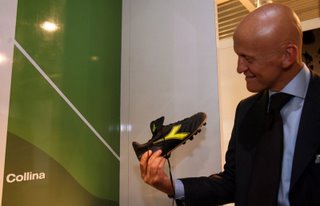The new role of the coach in professional sport

The role of the head coach, especially at the professional level, is changing a lot. The case of Woodward who, after winning the world title with the English national rugby team is aspiring to the position of c.t. for the English national soccer team, is not far off being reality. According specifically to Anglo-Saxon philosophy, a head coach can be both a technical-tactical reference and a manager with high organizational skills. The assistant coach is becoming more and more the person working directly on the field. In theory, in a working week the first days might be when the assistant coaches take care of technical aspects, whilst for the remaining days closer to the match it?s the job of the coach to tend to the tactical planning.The latin school of thought perceives the team above all as a "group", in which all players must always work together, making up that which is known as "team spirit". The professional sport's matrix of the Anglo-Saxon team, geared more to the outcome, means that the players are seen as interchangeable elements which do not necessarily always have to work together. The work set up is different: the players are true professionals who look after their own individual training. For this reason, even in team sports, there is an increasing number of personal trainers, meanwhile in the teams the position of the athletic coach is more and more often being taken by a physiotherapist. This is because the athletic training carried out in the context of the team is more oriented towards maintaining the athlete?s fitness and health rather than actual training.Moreover players are changing ever more frequently during a season and for a coach it's difficult to manage a team according to traditional group standards. This is why the organizational aspect, which passes as a technical staff capable of looking after more matters simultaneously, is becoming all the more important . And so the figurehead coach is more like a manager who manages the resources at his disposal, delegates individual technical matters to his assistants and intervenes mostly in mentality and motivational issues.






